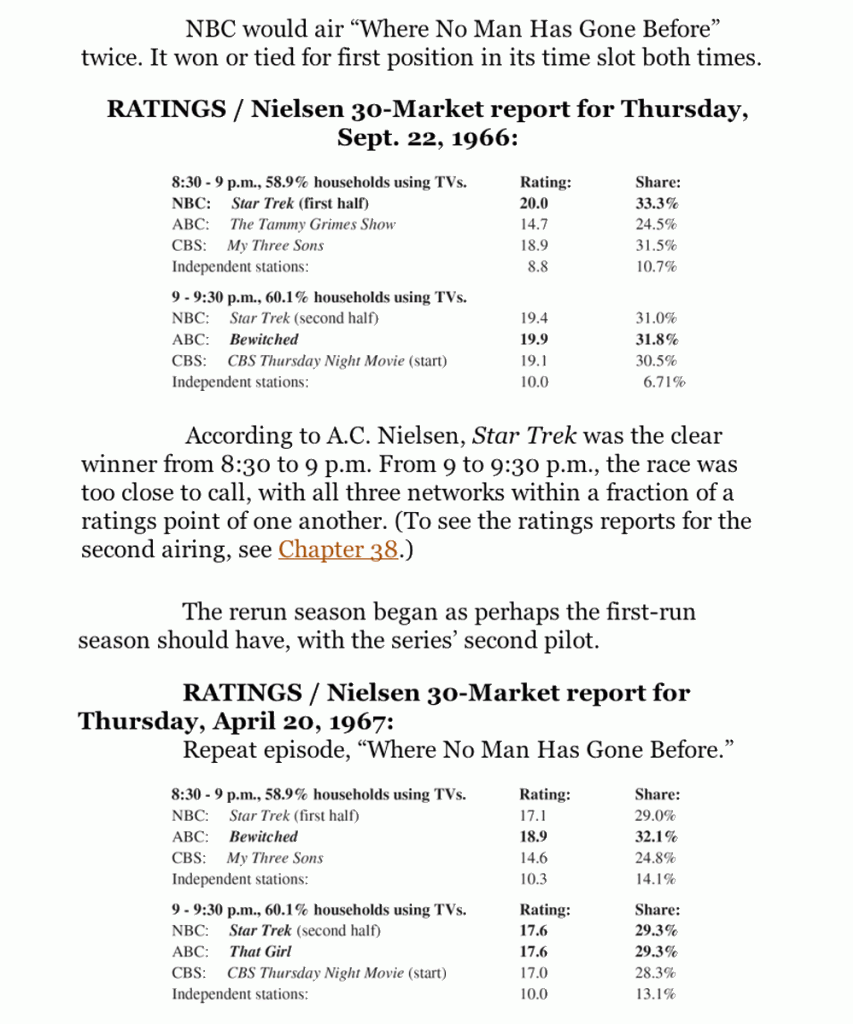Another thing cited in These Are The Voyages is that Star Trek was a show comfortably within the Top 40. Meanwhile Mission: Impossible was supposedly coming in quite a bit behind (and definitely not in the Top 40) and yet there were no rumblings from CBS about possibly cancelling the show. Indeed all indications were they were very happy with the series.
Does Cushman actually say this? I know he reprints the list from Broadcasting Magazine, but that is only based upon the ratings for the second and third episodes broadcast, not a reflection of the program's performance over the course of the season. (The list is also, at least in the first edition, inaccurately reproduced).
The archival sources I've found have placed Star Trek around 50th place in the 1966-67 season. It certainly doesn't show up in any top (20, 30, or 40) series lists in Broadcasting Magazine after the first few episodes.
See, the thing is if the show's ratings were truly disappointing then why renew the series (twice, after 1st and 2nd seasons) and continue losing money? Why not just be done with it?
The ratings weren't disappointing, per say, at least in the first season -- but the show definitely wasn't a "hit" in any meaningful sense of the term.

